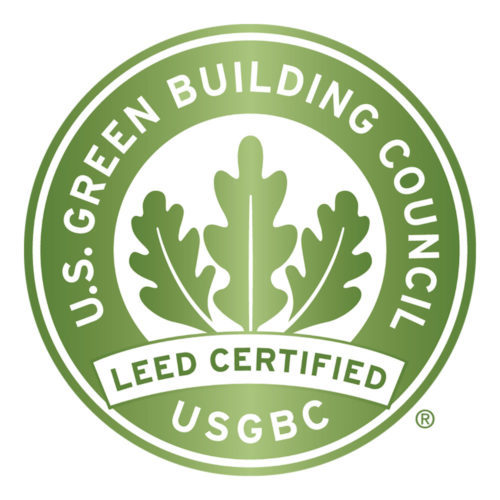What could your co-op building have in common with the Empire State Building and the Chrysler Building? If you’re thinking of renovating your New York City co-op to become more environmentally conscious, it could become LEED certified, just as these famous skyline icons are.
If the title “LEED certified” doesn’t ring a bell, don’t fret. We’re here to explain the certification and outline the steps you’ll need to take to get the process rolling.
What is LEED Certification?
LEED stands for Leadership in Energy and Environmental Design. It’s a certification program monitored by the U.S. Green Building Council. Originally developed for commercial buildings, now residential buildings and stand-alone homes can earn the honor.

By going green, your co-op building can transform the way you think about how buildings and communities are designed, constructed, maintained, and operated. By reducing your environmental footprint, you’ll experience benefits that go beyond your four walls. A LEED certification can be an expensive endeavor but, if you can do it, you’ll not only save you money but boost your bottom line.
There are several LEED categories in which you can earn points in. The number of points vary depending on the difficulty of the task. For example, improving interior lighting (part of the Indoor Air Quality category) can earn you up to 2 points while reducing indoor water use can earn your co-op unit up to 6 points. As you can guess, some of the fastest ways to earn points involve energy. Optimizing energy performance can earn you up to a whopping 18 points.
- Sustainable Sites – Think about the ecosystem that surrounds your building. By not disturbing it and encouraging it to thrive, you can earn points in this category.
- Water Efficiency – Keeping water waste to a minimum isn’t just about shutting the faucet off while you brush your teeth. Consider low-flow water features and save rain water for garden spaces.
- Energy and Atmosphere – To earn points in this category, you’ll need to take an innovative approach to energy. Research energy-efficient design strategies and consider renewable energy sources.
- Materials and Resources – Make sure that safe materials are used within the building. Replace those that have been identified as hazardous to human health and the environment with safe, long-lasting materials per co-op association renovation approval guidelines.
- Indoor Air Quality – Improve the inner ambiance of your co-op building by improving indoor air quality, lighting quality, and acoustic design. Make every inch of your building a pleasant place to be.
There are different levels of certification to shoot for. While it doesn’t take much to become certified, there are perks for achieving the higher levels.
- Certified 40-49 points
- Silver 50-59 points
- Gold 60-79 points
- Platinum 80-110 points
Benefits of Becoming LEED Certified
If you and your co-op unit can work together and earn points, or credits, towards your LEED certification, you’ll enjoy a wide array of benefits. But is all the work towards going green worth it? Explore the benefits of earning your certification.
- Health
Your health can improve with greener living. You’ll be doing your part to keep the air clean and proper ventilation systems do a better job at flushing out contaminated air and replacing it with fresh air when inside. You’ll also be exposed to less toxins through cleaning products and be living in a more health-conscious environment.
- Financial
You’ll be saving money by spending less on utilities and as a whole, buildings that are LEED certified are able to charge more in rent. On average, occupancy rates rise 1% while rent grows by 19.2%.
- Value
As a member of a co-op, you own shares of your building. One of the best benefits of being LEED certified is that the value of the building (and your ROI) should expand. An existing building that earned LEED certification can expect a building value increase of nearly 7%.
First Steps to Renovating Your New York City Co-op
Taking your co-op to the green side is easier than you think. While there’s a time and financial commitment, the individual steps themselves aren’t difficult.
The first step is to introduce the idea to the co-op board of your building. If you’re not a member of your board, schedule a time to meet with them and come prepared. Present the idea of LEED certification along with its benefits. Be ready to answer questions, refer them to proper resources, and make suggestions as to how to go about gaining certification.
For most existing buildings, the process of becoming LEED certified takes a couple of years. The exact time it takes for your co-op will vary based on your initial score and how quickly you’re able to make changes. Here are a few ideas to get you started.
- Install low-flow water fixtures
Switch out toilets, shower heads, and sink faucets for low-flow options. Also remind tenants to conserve water and avoid waste.
- Use green cleaning products
This includes by individual tenants and throughout common spaces. If your building utilizes a cleaning service, see if they offer green cleaning packages. Should you have to treat a pest problem, look for green options.
- Standardize waste management practices
If your co-op unit doesn’t already, come up with guidelines for waste disposal. Recycle responsibly and minimize waste. Encourage the use of reusable grocery bags. Suggest that tenants buy reusable razors instead of disposable and skip the paper plates and towels.
- LED and lighting control
This is one of the easiest places to start. Switch out old lightbulbs for energy-saving LED versions. While you don’t want to keep your lobby in the dark, look for lighting options with built-in motion detectors in less traveled areas of the building.
- Update the roof
What’s the current color of your roof? If it’s black, it could be taxing your HVAC system and absorbing abundant energy. While you can look into solar panels if your budget allows, you can also focus on a quicker fix. Paint the roof white or a lighter shade to reflect light and keep the building naturally cooler.
Need a little help transforming your co-op into a green space? Visit www.greenhomenyc.org, a volunteer-run organization that helps New York residents go green. Before you start tearing walls down though, make sure you stay within the guidelines of your co-op association renovation approval.
LEED Checklist
Are you ready to go green? Here’s how to get your certification.
- Register your building. Complete required forms and submit the application payment.
- Schedule your initial exam and wait for your score.
- Based on your score, come up with a plan to either reach certification or gain a higher ranking.
- Roll up your sleeves and get to work making sustainable upgrades to your co-op.
- Apply for LEED certification. Submit the completed application along with the review fee.
- Cross your fingers and wait patiently while your application is reviewed.
- Learn your fate. If you’ve been approved, you’ll earn your LEED certification. Congratulations!
If you don’t gain your certification on the first try or wish to achieve a higher ranking, you can continue making improvements until you meet your goal. Achieving LEED certification takes dedication and hard work. The good news is that it’s well worth the effort. New York City is one of the greenest cities in the country. Use this as motivation to earn the certification for your co-op. Not only can it be done, but it’s done more in NYC than much of the country.
To summarize, a LEED certified building is more environmentally responsible. Your building will be more profitable, and its residents will be healthier. By using less energy, water, and resources, the lower impact on the environment will provide everyone in your co-op with empowerment and pride.




